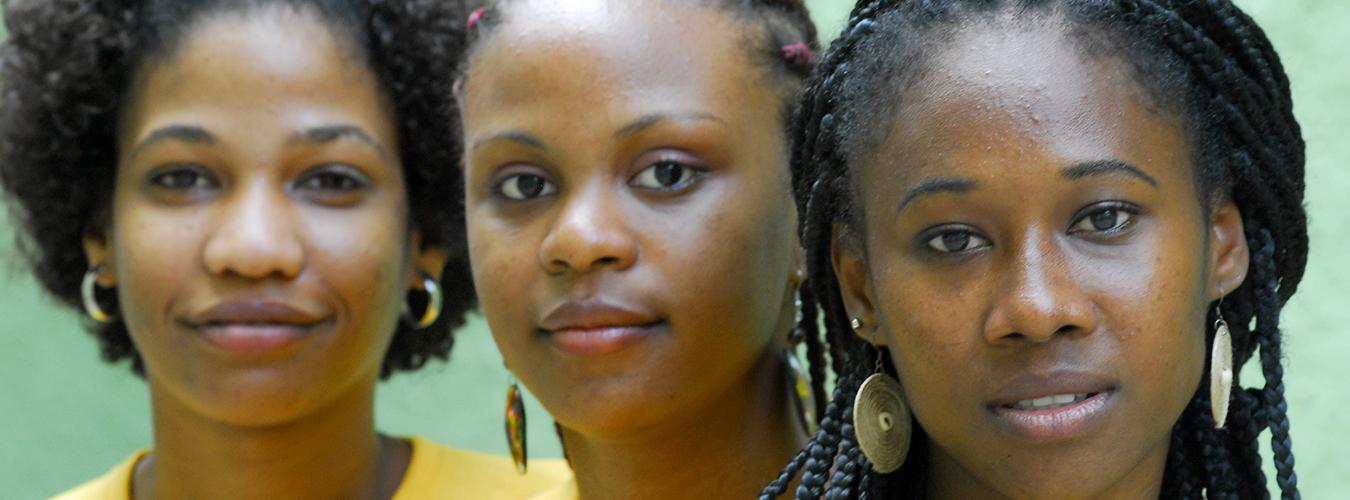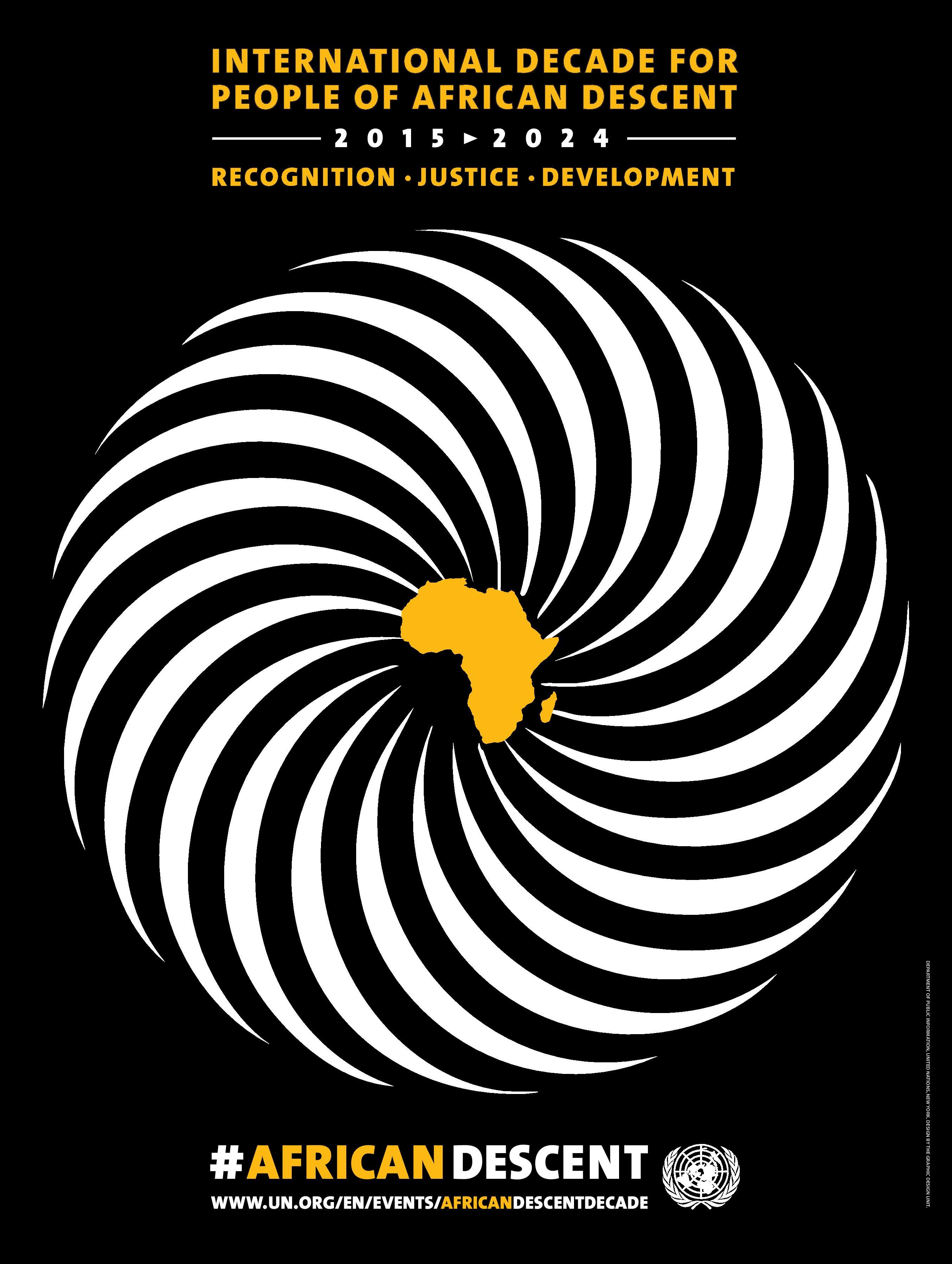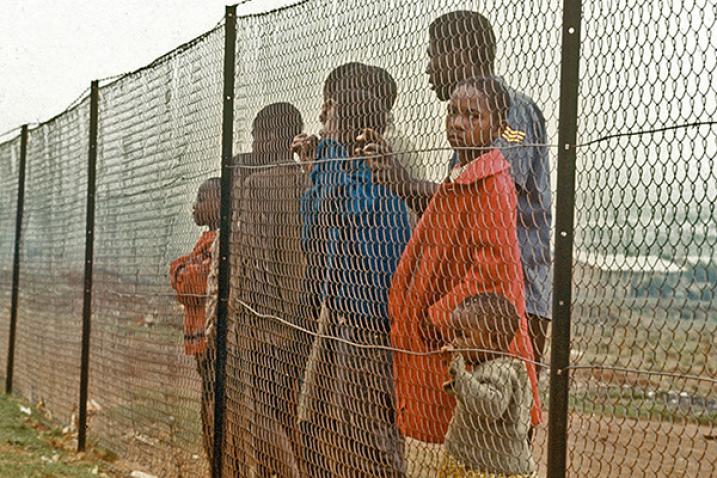I urge States to take concrete steps, with the full participation of people of African descent and their communities, to tackle old and new forms of racial discrimination; and to dismantle entrenched structural and institutional racism."
UN Secretary-General António Guterres
UN kicks off global push for equality with new Decade for People of African Descent
In a transformative moment for global equality, the General Assembly adopted a new resolution in December 2024, launching the Second International Decade for People of African Descent. Running from January 1, 2025, to December 31, 2034, this decade embraces the theme “People of African Descent: Recognition, Justice, and Development,” aiming to highlight the importance of acknowledging the rights and contributions of people of African descent.
Building on the progress of the previous decade, this initiative seeks to amplify global efforts toward justice and development for individuals of African descent. By fostering collaboration among governments, organizations, and communities, the Second International Decade aspires to create a more equitable future—one in which the aspirations and rights of people of African descent are fully recognized, honored, and celebrated
Honouring the contributions of the African diaspora
2024 was the last year of the International Decade for People of African Descent, an initiative launched by the United Nations General Assembly to recognize people in the Americas, who are of African descent as a distinct group whose human rights must be safeguarded. Through this Observance the United Nations aims to promote the extraordinary contributions of the African diaspora around the world and to eliminate all forms of discrimination against people of African descent.
International days reflect the values that society shares. All human beings are born free and equal in dignity and rights and have the potential to contribute constructively to the development and well-being of their societies. Any doctrine of racial superiority is scientifically false, morally condemnable, socially unjust, and dangerous and must be rejected, together with theories that attempt to determine the existence of separate human races.
The United Nations strongly condemns the continuing violent practices and excessive use of force by law enforcement agencies against Africans and people of African descent and condemns structural racism in criminal justice systems around the world. The Organization further acknowledges the Transatlantic Slave Trade as one of the darkest chapters in our human history and upholds human dignity and equality for the victims of slavery, the slave trade and colonialism, in particular people of African descent in the African diaspora.
International Decade for People of African Descent (2015-2024)
The International Decade aims to celebrate the important contributions of people of African descent worldwide, advance social justice and inclusion policies, eradicate racism and intolerance, promote human rights, and assist in creating better, more prosperous communities, in line with the Sustainable Development Goals spearheaded by the United Nations.
Progress and challenges
The year 2024 marked the end of the International Decade for People of African Descent. While some progress was made at legislative, policy and institutional levels, people of African descent continue to suffer intersectional and compounded forms of racial discrimination, marginalization, and exclusion. In 2020, five years into the Decade, the COVID-19 pandemic shed light on the urgency to address long standing structural inequalities and systematic racism in health. The lack of recognition remains one of the major barriers impeding the full and effective enjoyment of human rights by people of African descent.
The year 2020 also marked a turning point in the way these issues were being addressed at international and national levels. The murder of George Floyd galvanized people to protest racism and racial discrimination and prompted important global discussions on racial justice. On 19 June 2020, the Human Rights Council adopted the resolution on the “Promotion and protection of the human rights and fundamental freedoms of Africans and people of African descent against excessive use of force and other human rights violations by law enforcement officers”. Pursuant to this resolution, the High Commissioner for Human Rights presented to the Human Rights Council at its 47th session an agenda towards transformative change for racial justice and equality.
Societies around the world are increasingly recognizing the role structural racism plays in driving social, economic and political inequalities; several countries have made racial profiling and discrimination illegal and have introduced policies to promote the rights and choices for people of African descent.
Governments have accelerated their efforts to make Afrodescendants more statistically visible in order to address historical injustices and to bridge gaps in access to health care, social services and opportunities.
Further action, political will and investments are needed to end inequalities and ensure the full empowerment of people of African descent.
The Underground Railroad: A Secret Path to Freedom over Niagara Falls | Global Lens
This episode of Global Lens examines the pivotal role of the Underground Railroad in establishing African American resistance, and celebrates the courage of those who risked their lives to help others escape, including the legendary Harriet Tubman.
Our lead character is educator, author and human rights advocate Saladin Allah, a descendent of Underground Railroad forerunner Josiah Henson, whose life was the inspiration for Harriet Beecher Stowe’s novel Uncle Tom’s Cabin. As a visitor experience specialist at the Niagara Falls Underground Railroad Heritage Center, Saladin is an expert storyteller who takes us on an unforgettable journey through African American history, and reminds us that we all play a role in shaping the next generation. Only through education and historical truth-telling can we achieve a recognition of past wrongdoing, and work toward a more just world.
Related websites
- International Decade for People of African Descent
- Fellowship programme for People of African Descent
- International Day for Women and Girls of African Descent
- Fight racism
- #FightRacism (OHCHR)
- Outreach Programme on the transatlantic slave trade and slavery
- Conferences | Racism
- World Conference to Combat Racism and Racial Discrimination (1978)
- Second World Conference to Combat Racism and Racial Discrimination (1983)
- World Conference Against Racism, Racial Discrimination, Xenophobia and Related Intolerance (2001, Durban)
- Durban Review Conference (2009)
- 10th Anniversary of the Durban Declaration and Programme of Action (2011)
- Durban Declaration and Programme of Action 20th Anniversary (2021)
Key documents
- General Assembly resolution: International Day for People of African Descent
- General Assembly resolution: Proclamation of the International Decade for People of African Descent
- Human Rights Council resolution: Promotion and protection of the human rights and fundamental freedoms of Africans and people of African descent
- General Assembly resolution: International Day for the Elimination of Racial Discrimination
- General Assembly resolution: Week of Solidarity with the Peoples Struggling against Racism and Racial Discrimination
- International Convention on the Elimination of all Forms of Racial Discrimination (ICERD)
- Declaration on Race and Racial Prejudice
- Durban Declaration and Programme of Action
- Outcome Document of the Durban Review Conference
- Political Declaration adopted at the 10-year anniversary of the Durban Conference
- Report of the Working Group of Experts on People of African Descent
- Report of the United Nations High Commissioner for Human Rights
UN Human Rights
- Working Group of Experts on People of African Descent
- Committee on the Elimination of Racial Discrimination
- Special Rapporteur on contemporary forms of racism, racial discrimination, xenophobia and related intolerance
- Intergovernmental Working Group on the effective implementation of the Durban Declaration and Programme of Action
- Anti-discrimination database
Watch






